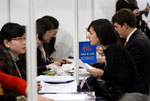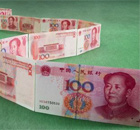Chinese cars invade Saudi Arabia market
Updated: 2011-10-18 15:54
(albawaba.com)
|
|||||||||||
Nearly 3,000 Chinese-made cars, worth 15 million SAR, will make their debut in Saudi Arabia in the next few days. Agents expect strong demand for such price competitive vehicles, a newspaper in the Gulf Kingdom reported on Saturday.
Agents in Saudi Arabia, the largest consumer market in the Middle East, said they had already imported spare parts and established sufficient maintenance units for the cars, branded Geely and Geely Emgrand.
“The 3000 cars are the first batch of Chinese vehicles to be imported by the company,” said Ali Hussein Riza, CEO of Hussein Riza company.
“We expect strong demand for these cars because of their competitive prices and the abundance of spare parts and maintenance services which have already been made available ahead of the arrival of the cars.”
Ali Hussein Riza said the company had taken into consideration the fact that the Saudi car market is dominated by such industrial giants as the US, Japan, Germany and South Korea.
“The good thing is that the Chinese cars are designed for the climate in Saudi Arabia and the other Gulf countries,” he said.
Preliminary contracts were signed by the company and the Geely Emgrand Company on the sidelines of the Shanghai International Car Fair, recently held in China. Showrooms with maintenance and after-sale services have already been agreed upon. The Chinese company will have its cars under one brand name “Geely and Geely Emgrand,” which will include 4 medium-sized 2012 vehicles.
A report released by the International Delwet Counseling Company stressed the key role China will play on the international economic scene in the Middle East. The report also suggests that China is and will be among the top oil and gas importers, which will deepen its economic activities with oil-producing countries, especially the GCC countries which are predicted to have a $60 billion in trade with China by 2015.











